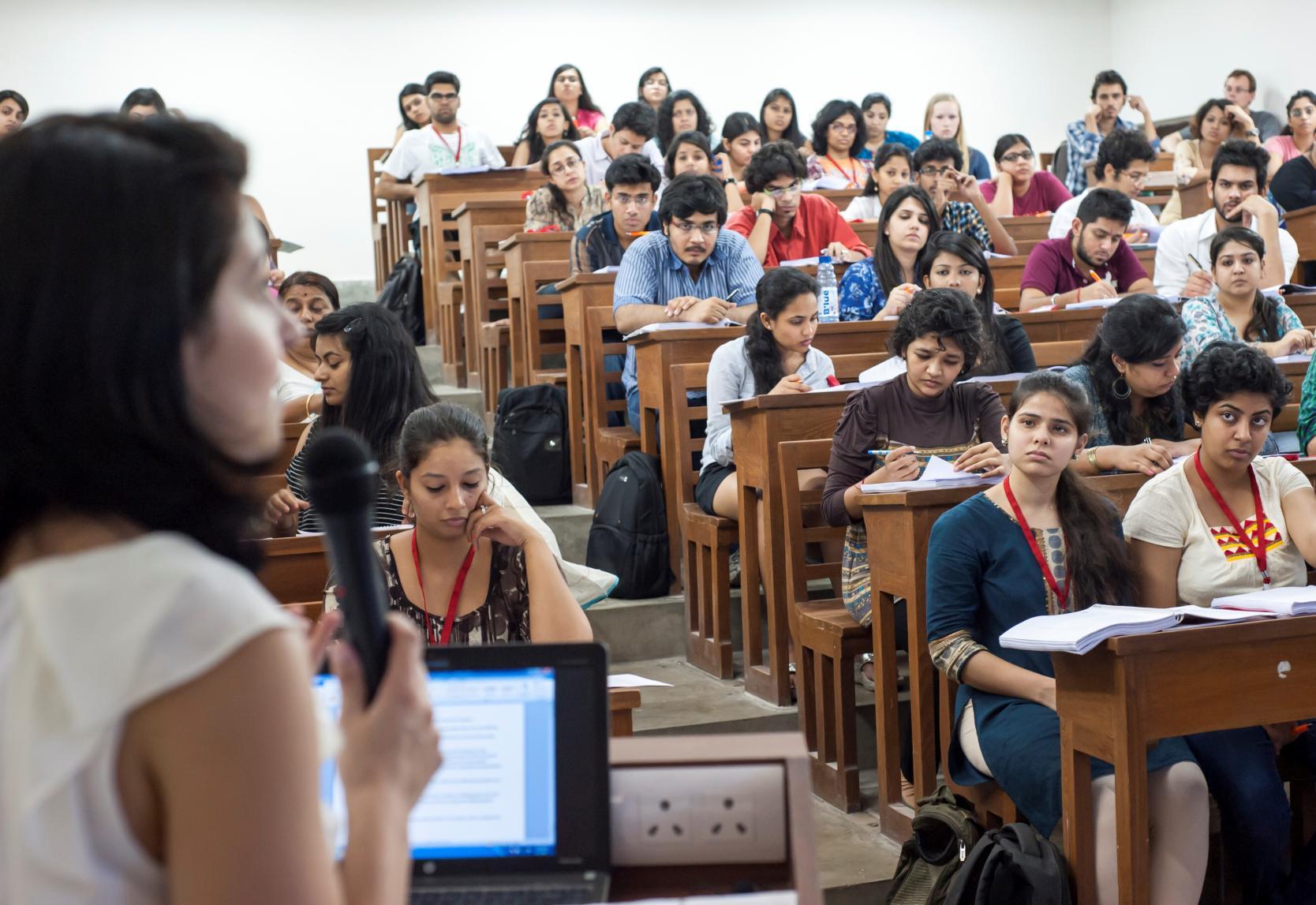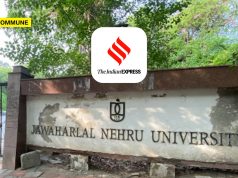
The Union Cabinet chaired by Prime Minister Narendra Modi gave its assent to the National Education Policy 2020 on July 29, 2020 paving way for the long awaited reforms in education sector.
This is the 1st policy for the 21st century replacing the more than three decades old National Education Policy 1986 and is the most elaborate and comprehensive policy initiative in education taken by the Modi government.
The policy aims at large scale and transformational reforms in school and higher education aligning with the 2030 Agenda for Sustainable Development Goals.
The NEP is being built on the foundational pillars of Access, Equity, Quality, Affordability and Accountability.
This policy envisions to turn India into a vibrant knowledge society and global knowledge superpower by making both school and college education more holistic, flexible, multidisciplinary, suited to 21st century needs and aimed at bringing out the unique capabilities of each student.
Here are some of the key elements in the policy with respect to higher education:
Increase GER to 50 % by 2035
NEP 2020 aims to increase the Gross Enrolment Ratio in higher education including vocational education from 26.3% (2018) to 50% by 2035. 3.5 Crore new seats will be added to Higher education institutions.
Holistic Multidisciplinary Education
The policy envisages broad-based, multi-disciplinary, holistic Under Graduate education with flexible curricula, creative combinations of subjects and integration of vocational education in the mainstream. One of the unique elements present in the policy is the multiple entry and exit points with appropriate certification. UG education can be of 3 or 4 years with multiple exit options and appropriate certification within this period.
For example, students will be given a Certificate after 1 year, Advanced Diploma after 2 years, Bachelor’s Degree after 3 years and Bachelor’s with Research after 4 years. M.Phil courses to be discontinued.
An Academic Bank of Credit is to be established for digitally storing academic credits earned from different HEIs so that these can be transferred and counted towards final degree earned. This will prove to be useful for those who take a sabbatical during their course period.
Multidisciplinary Education and Research Universities (MERUs), at par with IITs, IIMs, to be set up as models of best multidisciplinary education of global standards in the country.
The National Research Foundation will be created as an apex body for fostering a strong research culture and building research capacity across higher education.
Regulation
Higher Education Commission of India(HECI) will be set up as a single overarching umbrella body for entire higher education, excluding medical and legal education. HECI to have four independent verticals – National Higher Education Regulatory Council (NHERC) for regulation, General Education Council (GEC ) for standard-setting, Higher Education Grants Council (HEGC) for funding, and National Accreditation Council( NAC) for accreditation. HECI will function through faceless intervention through technology, & will have powers to penalise HEIs not conforming to norms and standards. Public and private higher education institutions will be governed by the same set of norms for regulation, accreditation and academic standards.
Rationalised Institutional Architecture
Higher education institutions will be transformed into large, well resourced, vibrant multidisciplinary institutions providing high-quality teaching, research, and community engagement. The definition of the university will allow a spectrum of institutions that range from research-intensive universities to teaching-intensive universities and autonomous degree-granting Colleges.
Affiliation of colleges is to be phased out in 15 years and a stage-wise mechanism is to be established for granting graded autonomy to colleges. Over a period of time, it is envisaged that every college would develop into either an Autonomous degree-granting College or a constituent college of a university.
Motivated, Energized, and Capable Faculty
NEP makes recommendations for motivating, energizing, and building capacity of faculty through clearly defined, independent, transparent recruitment, freedom to design curricula/pedagogy, incentivising excellence, movement into institutional leadership. Faculty not delivering on basic norms will be held accountable
Teacher Education
A new and comprehensive National Curriculum Framework for Teacher Education, NCFTE 2021, will be formulated by the NCTE in consultation with NCERT. By 2030, the minimum degree qualification for teaching will be a 4-year integrated B.Ed. degree. Stringent action will be taken against substandard stand-alone Teacher Education Institutions (TEIs).
Mentoring Mission
A National Mission for Mentoring will be established, with a large pool of outstanding senior/retired faculty – including those with the ability to teach in Indian languages – who would be willing to provide short and long-term mentoring/professional support to university/college teachers.
Financial support for students
Efforts will be made to incentivize the merit of students belonging to SC, ST, OBC, and other SEDGs. The National Scholarship Portal will be expanded to support, foster, and track the progress of students receiving scholarships. Private HEIs will be encouraged to offer larger numbers of free ships and scholarships to their students.
Open and Distance Learning
This will be expanded to play a significant role in increasing GER. Measures such as online courses and digital repositories, funding for research, improved student services, credit-based recognition of MOOCs, etc., will be taken to ensure it is at par with the highest quality in-class programmes.
Online Education and Digital Education:
A comprehensive set of recommendations for promoting online education consequent to the recent rise in epidemics and pandemics in order to ensure preparedness with alternative modes of quality education whenever and wherever traditional and in-person modes of education are not possible has been covered. A dedicated unit for the purpose of orchestrating the building of digital infrastructure, digital content and capacity building will be created in the MHRD to look after the e-education needs of both school and higher education.
Technology in education
An autonomous body, the National Educational Technology Forum (NETF), will be created to provide a platform for the free exchange of ideas on the use of technology to enhance learning, assessment, planning, administration. Appropriate integration of technology into all levels of education will be done to improve classroom processes, support teacher professional development, enhance educational access for disadvantaged groups and streamline educational planning, administration and management
Promotion of Indian languages
To ensure the preservation, growth, and vibrancy of all Indian languages, NEP recommends setting an Indian Institute of Translation and Interpretation (IITI), National Institute (or Institutes) for Pali, Persian and Prakrit, strengthening of Sanskrit and all language departments in HEIs, and use mother tongue/local language as a medium of instruction in more HEI programmes.
Internationalization of education will be facilitated through both institutional collaborations and student and faculty mobility and allowing entry of top world ranked universities to open campuses in our country.
Professional Education
All professional education will be an integral part of the higher education system. Stand-alone technical universities, health science universities, legal and agricultural universities etc will aim to become multi-disciplinary institutions.
Adult Education
The policy aims to achieve 100 per cent youth and adult literacy.
Financing Education
The Centre and the States will work together to increase the public investment in the Education sector to reach 6% of GDP at the earliest.
Source: PIB




